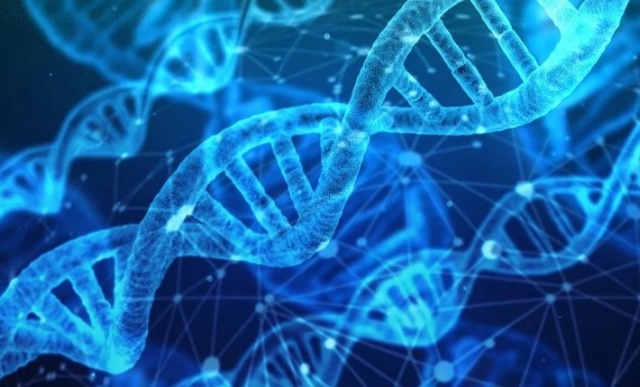Finding The Difference Between Peptides And Proteins
Página 1 de 1.
 Finding The Difference Between Peptides And Proteins
Finding The Difference Between Peptides And Proteins
Finding The Difference Between Peptides And Proteins
25/05/2020
Agencies |.- Peptides are said to be the next big thing in the pharmaceutical world. While most biochemists are looking into the compound’s possibilities as an effective treatment, people are still unaware of the fact that how it is distinct from proteins. Both peptides and proteins are fundamental elements of an animal cell. However, there are some specific dissimilarities between the two, that make them useful for different purposes. Here is a precise detail of what these two elements are, how they are similar, and how they differ from each other.
Before that, it is necessary to know what amino acids are and how are they related to both of these compounds.
Amino Acids
Amino acids are organic compounds that form chains to produce proteins or peptides. A human body has 20 different types of amino acids that help it in functions like:
Proteins
Proteins are large molecules that are responsible for building the cells of the body. They consist of at least fifty amino acids, and this quantity plus, type of amino acids decide the function of the protein. Mostly, proteins give shape to the cells and play various roles in the body, such as:
Technically, proteins can be considered as the essential elements that build-up cells, and ultimately the entire body.
Peptides
Moving on to the star compound, peptides. Just like protein, peptides are also made up of amino acids. However, they are comparatively smaller than proteins and consist of lesser amino acids. They usually have 2+ amino acids, and their type decides the function of peptides.
The primary purpose of peptides in the human body is to carry information between the tissues. With this property, they help in aiding the regulation of blood sugar and appetite. They are considered as hormones that can be found in the brain, various glands, stomach, and intestine.
Differentiation Between Proteins And Peptides
From the above properties, it seems like both the components are almost similar to each other. But they do have some fundamental differences like:
● Size: As mentioned above, they both have different amounts of amino acids in them. While proteins have 50+ amino acids, peptides have 2+ amino acids. The peptides which have amino acids in the range of 10-50 are named Polypeptides. And one or more polypeptides form proteins. So technically, proteins are nothing but a combination of peptides.
● Structure: Another big difference that can be found in the two compounds is their structure and shape. As peptides have lesser amino acids, their structure is simple as compared to proteins. On the other hand, proteins’ multidimensional structure allows them to perform complex functions.
Apart from these differences, both the compounds are almost the same.
Conclusion
Proteins and peptides are primary elements of animal cells that are responsible for various functions. As both of them play an essential role in building tissues and development of the body, they have high pharmaceutical potential. That is why researchers are working on them to find what all benefits they can provide.
 Author: Agencies
Author: Agencies
25/05/2020
Photo Pixabay Photo Service/Geralt
Agencies |.- Peptides are said to be the next big thing in the pharmaceutical world. While most biochemists are looking into the compound’s possibilities as an effective treatment, people are still unaware of the fact that how it is distinct from proteins. Both peptides and proteins are fundamental elements of an animal cell. However, there are some specific dissimilarities between the two, that make them useful for different purposes. Here is a precise detail of what these two elements are, how they are similar, and how they differ from each other.
Before that, it is necessary to know what amino acids are and how are they related to both of these compounds.
Amino Acids
Amino acids are organic compounds that form chains to produce proteins or peptides. A human body has 20 different types of amino acids that help it in functions like:
- ● Tissue growth
● Energy generation
● Immune function
● Muscle repair
● Nutrient absorption
Proteins
Proteins are large molecules that are responsible for building the cells of the body. They consist of at least fifty amino acids, and this quantity plus, type of amino acids decide the function of the protein. Mostly, proteins give shape to the cells and play various roles in the body, such as:
- ● Sending signals between cells
● Form cell structure
● Forms new molecules
● Works as antibodies to fight viruses
● Form enzymes
Technically, proteins can be considered as the essential elements that build-up cells, and ultimately the entire body.
Peptides
Moving on to the star compound, peptides. Just like protein, peptides are also made up of amino acids. However, they are comparatively smaller than proteins and consist of lesser amino acids. They usually have 2+ amino acids, and their type decides the function of peptides.
The primary purpose of peptides in the human body is to carry information between the tissues. With this property, they help in aiding the regulation of blood sugar and appetite. They are considered as hormones that can be found in the brain, various glands, stomach, and intestine.
Differentiation Between Proteins And Peptides
From the above properties, it seems like both the components are almost similar to each other. But they do have some fundamental differences like:
● Size: As mentioned above, they both have different amounts of amino acids in them. While proteins have 50+ amino acids, peptides have 2+ amino acids. The peptides which have amino acids in the range of 10-50 are named Polypeptides. And one or more polypeptides form proteins. So technically, proteins are nothing but a combination of peptides.
● Structure: Another big difference that can be found in the two compounds is their structure and shape. As peptides have lesser amino acids, their structure is simple as compared to proteins. On the other hand, proteins’ multidimensional structure allows them to perform complex functions.
Apart from these differences, both the compounds are almost the same.
Conclusion
Proteins and peptides are primary elements of animal cells that are responsible for various functions. As both of them play an essential role in building tissues and development of the body, they have high pharmaceutical potential. That is why researchers are working on them to find what all benefits they can provide.
| Agencies
 Author: Agencies
Author: AgenciesPágina 1 de 1.
Permisos de este foro:
No puedes responder a temas en este foro.

 Portal
Portal Índice
Índice Eventos
Eventos Tú Opinas
Tú Opinas Calendario
Calendario FAQ
FAQ Buscar
Buscar Registrarse
Registrarse Conectarse
Conectarse




















